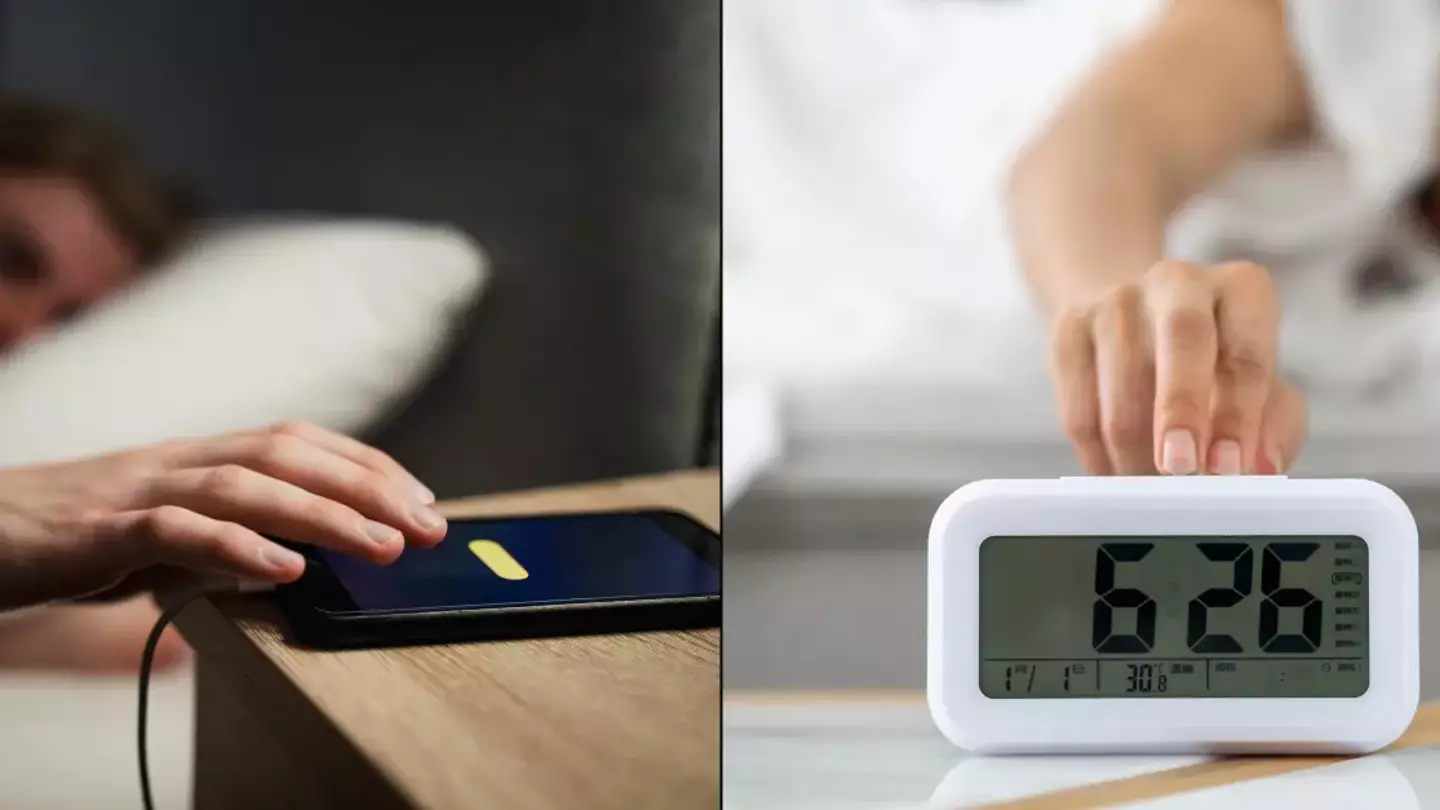
Imagine not needing an alarm to wake you up?
Because it’s often on your phone, you end up waking up and going on a doom scroll sesh before you’ve even got up to brush your teeth.
And it’s still hard to believe that there are actually people among us who can just wake up without using one.
As someone who does shift work, I can assure you that isn’t really an option for me.
But the truth is that there’s actually a scientific reason why some people are able to wake up just before their alarm goes off, essentially disturbing those extra precious minutes of sleep.
Well, your body is controlled by a ball of nerves known as the suprachiasmatic nucleus, which sits in the middle of the brain.
The nerves play a vital role as they control your blood pressure, body temperature and most importantly in unravelling this scientific mystery, our sense of time.
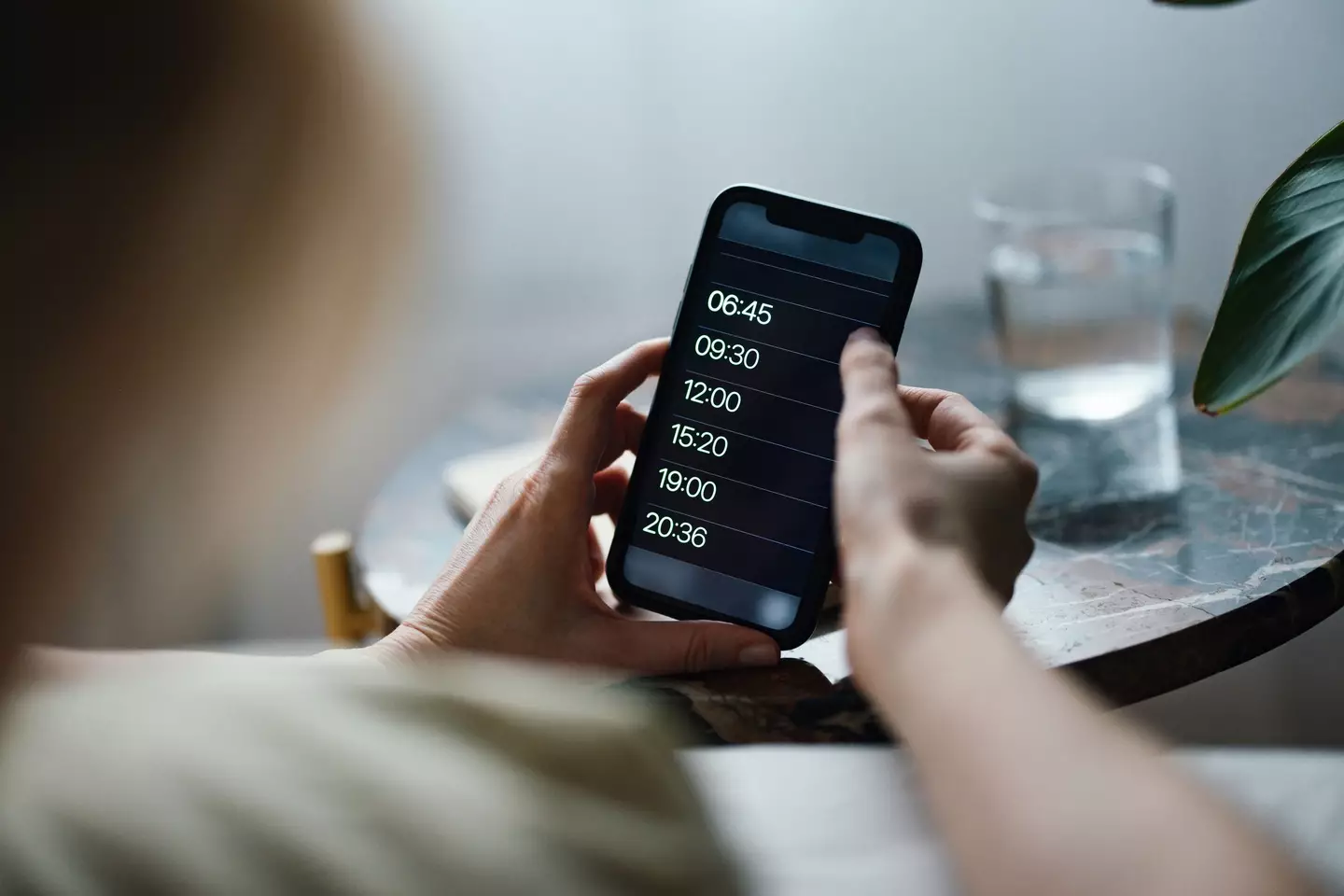
Most of us love to hit that snooze button (Getty Stock Images)
The suprachiasmatic nucleus can also decide when we you are feeling sleepy and when you feel wide awake, so you know who to blame when you are wanting a snooze despite eight hours sleep the previous night.
Your body clock responds to a routine, becoming more efficient when you head for bed at the same time each night and wake up at the same time each morning.
A protein called PER is very important in this situation because it regulates your sleep-wake cycle.
The level of proteins will rise and fall throughout the day, peaking in the evening and at their lowest at night.
Low levels of this protein will lead to low blood pressure, which makes us groggier and ready for bed.
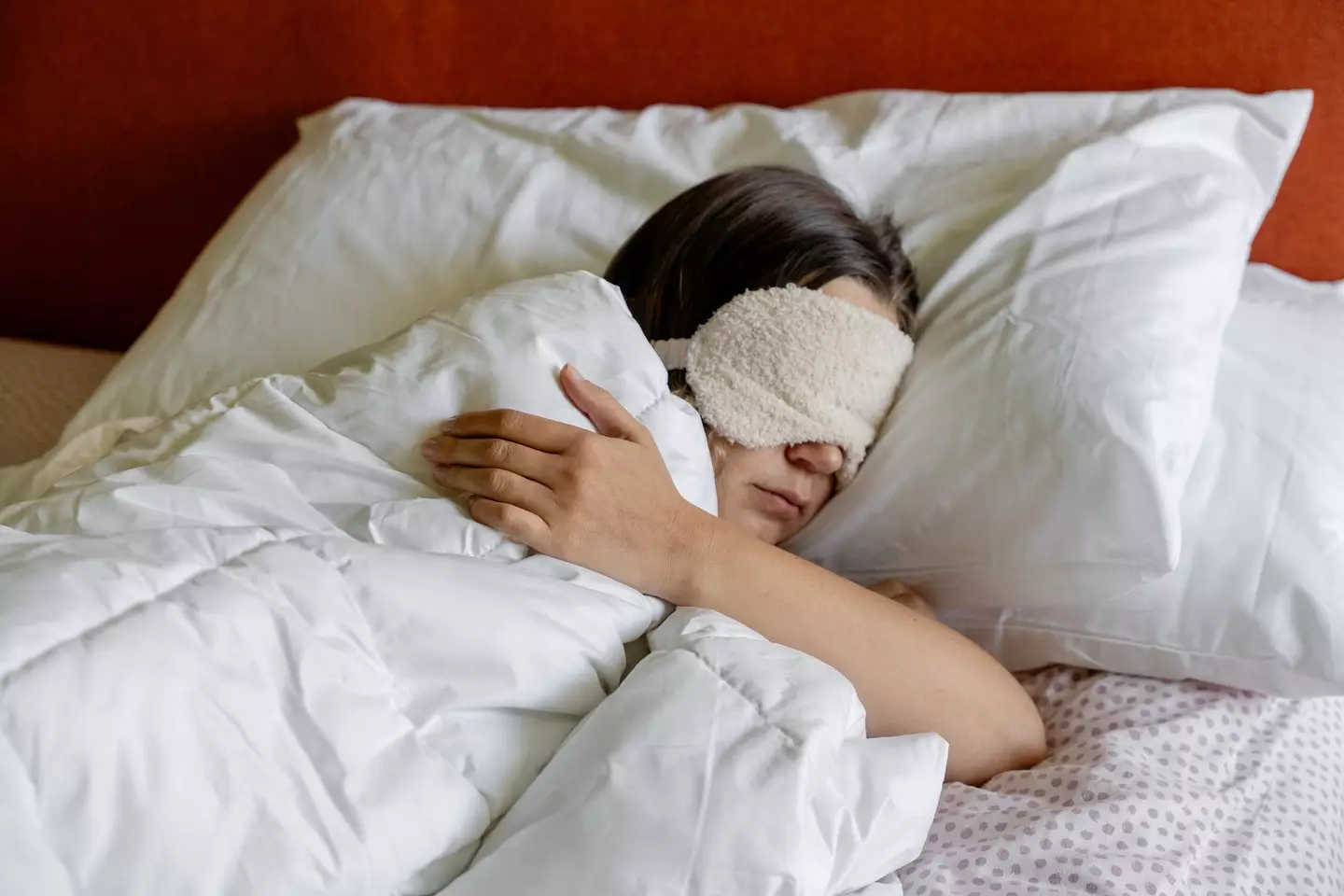
That horrible feeling when you wake up before your alarm (Getty Stock Images)
Scientists say that if you stick to a consistent sleep schedule, your body will learn to adapt and increase your levels of PER just before your alarm is due to go off.
They say this increase will usually happen around an hour before your alarm is due to go off, as we release stress hormones.
When you haven’t woken up before the alarm, it can be a bit of a shock, and as result can cause stress to your body.
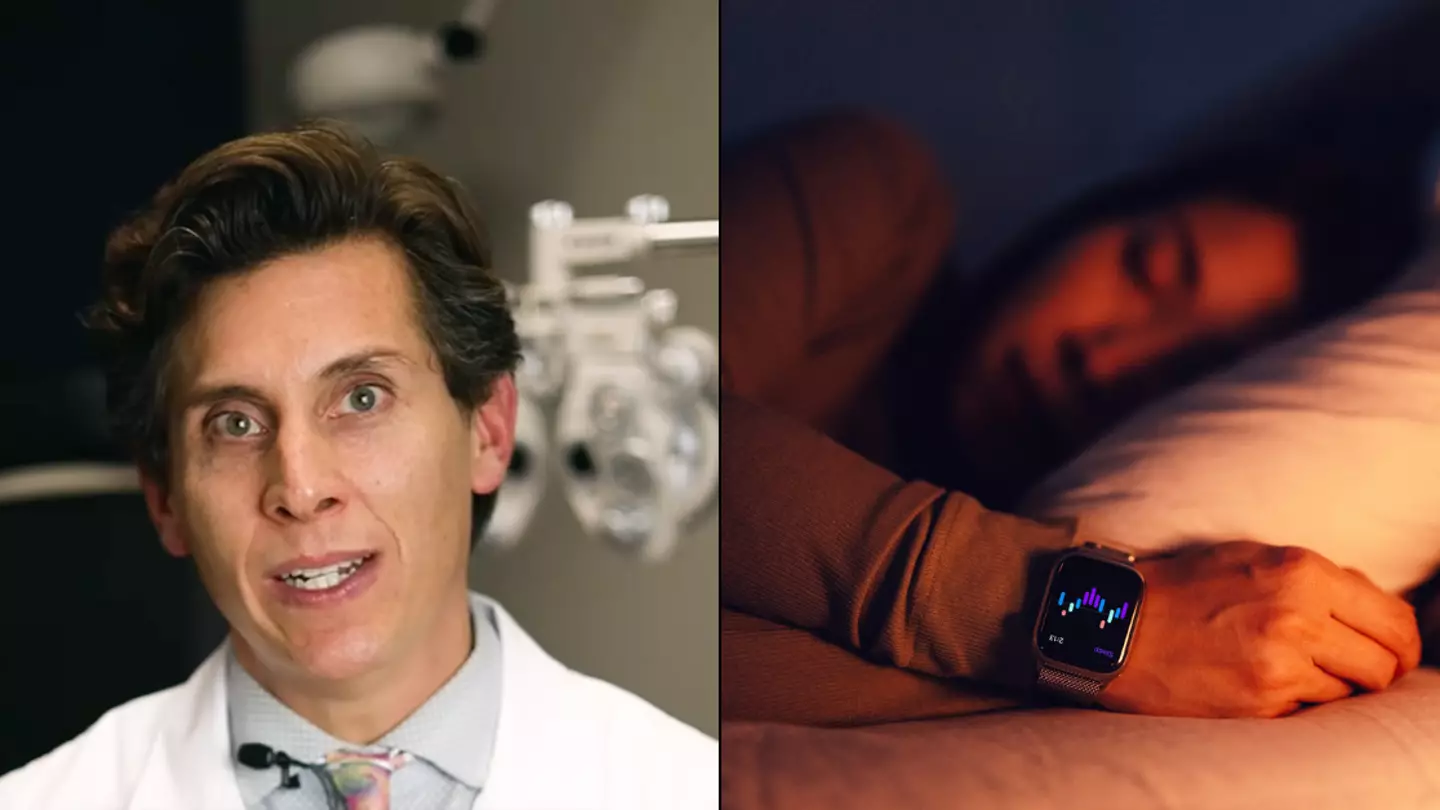
This is one for all the night owls out there.
You may enjoy staying up until the early hours of the morning despite the negative effects it has on you the next morning, but a shocking revelation has been made on what it can do to your health in the long-term.
The recommended amount of sleep for adults according to the NHS is seven to nine hours a night, though this may be hard to consistently achieve after fitting everything into your day.

Not sleeping enough means you pay a hefty price in the morning (Getty Stock Photo)
But it’s key to do your best, so that means avoiding a doom-scroll on your phone before bed or flicking through Netflix to ‘wind down’.
Stressing about your day or worrying about the next can also play into overstimulation and stress before some shut-eye, though Doctor Dan Friedrich has taken to TikTok to explain why sleep is paramount to your wellbeing.
Apparently, it can shorten your life, as he explained: “If you think that you can survive on only four to five hours of sleep every night, you’re going to have an early death,
“And so studies have shown again and again that the optimal amount of sleep is between six and eight hours a night, preferably at least seven,” he chillingly revealed.
But it turns out that you also shouldn’t sleep more than a certain amount too, as the health expert continued his explanation.
Dr Friedman went on: “If you go more than nine hours it’s also bad for your health, but sleeping less than five is the worst thing you could possibly be doing.”
He added that it means ‘increased mortality’, adding that ‘cardiovascular disease’ and ‘all types of diseases’ are linked to a lack of sleep.
Other studies show that under-sleeping can be detrimental to your health, with older people sleeping less than five hours a night increasing their chances of premature death by 25 percent.

Too little or too much sleep can negatively affect our health (TikTok/drdanfriederich)
University College London has carried out some research with 7,864 people over the age of 50 across the UK, finding that the older you are, the more likely you are to suffer from long-term health conditions over sleep deprivation.
Dr Severine Sabia, the lead author of the study, highlighted: “Multimorbidity (the presence of two or more long-term health conditions) is on the rise in high-income countries and more than half of older adults now have at least two chronic diseases.
“This is proving to be a major challenge for public health, as multimorbidity is associated with high healthcare service use, hospitalisations and disability.”
She also said that multimorbidity is associated with short sleep duration.
Dr Sabia pointed out the things we should focus on to improve the duration and quality of sleep, highlighting a dark, quiet bedroom, sleep hygiene and a comfortable temperature.
Exercise and exposure to light in the day also results in better sleep, while large meals and use of electronic devices before bed are advised against.
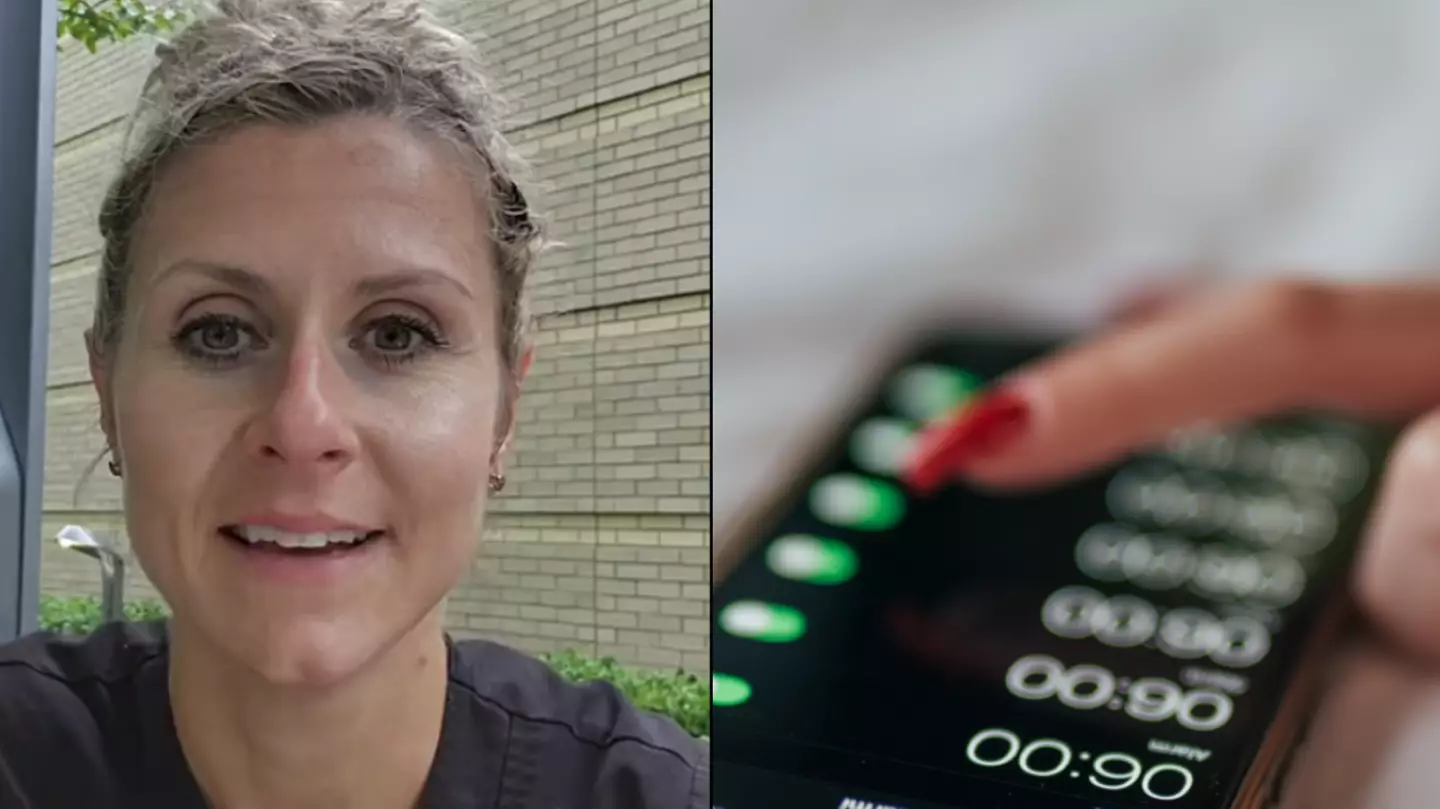
Dear reader, if you are like me then it probably takes more than one alarm to get you out of bed in the morning.
Alarm number one is more of a herald that it’s time to hit the snooze button and spend 10 more minutes in bed, and perhaps another 10 after that if I’m feeling daring.
Deep down, you might suspect that this is not the best way to be getting a little bit more sleep considering you’re trading at best a few more minutes of slumber for a second round of alarms to rudely awaken you.
Others might have a more structured morning routine with several alarms set and scheduled to guarantee you wake up and stay up.
However, a nurse has warned that this really isn’t a good idea and explained why you ought to avoid setting multiple alarms to rouse you from the land of nod.
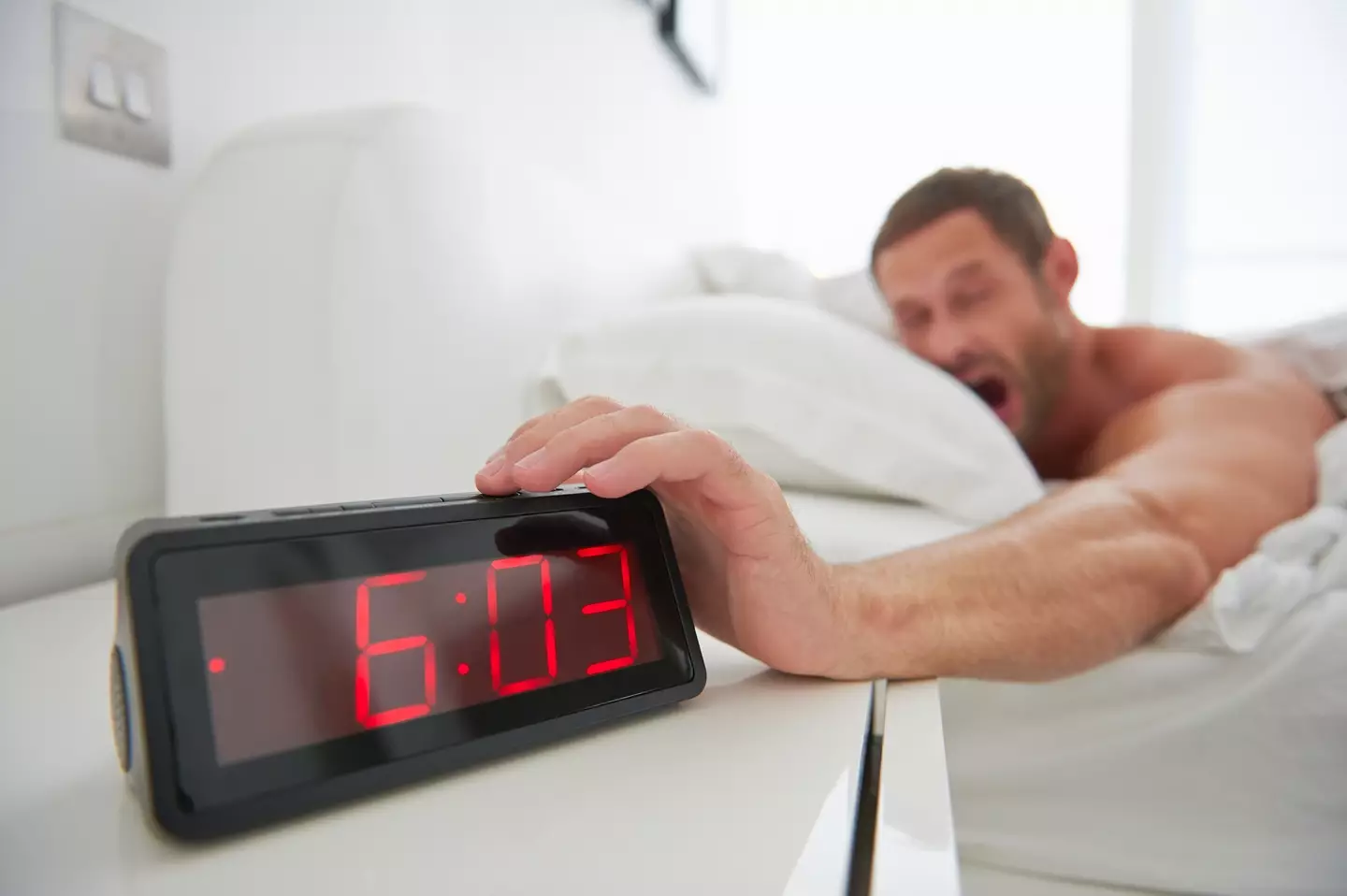
“No, no. Don’t hit the snooze button.” (Getty Stock Photo)
TikToking nurse Jordan said it would impact your ‘REM cycle’ which is where your rapid eye movement occurs and you can get a deeper sleep where you start to dream and your body truly recovers.
She said: “If you’re someone who sets multiple alarms I have bad news for you, don’t come for me, just trying to help.
“Waking to multiple alarms every morning really disrupts your REM cycle frequently.
“This actually causes sleep inertia, increased drowsiness, fatigue, mood swings and it also raises your cortisol levels.
“Every time your alarm goes off you’re in that fight or flight response so waking up like that multiple times in the morning is very stressful.
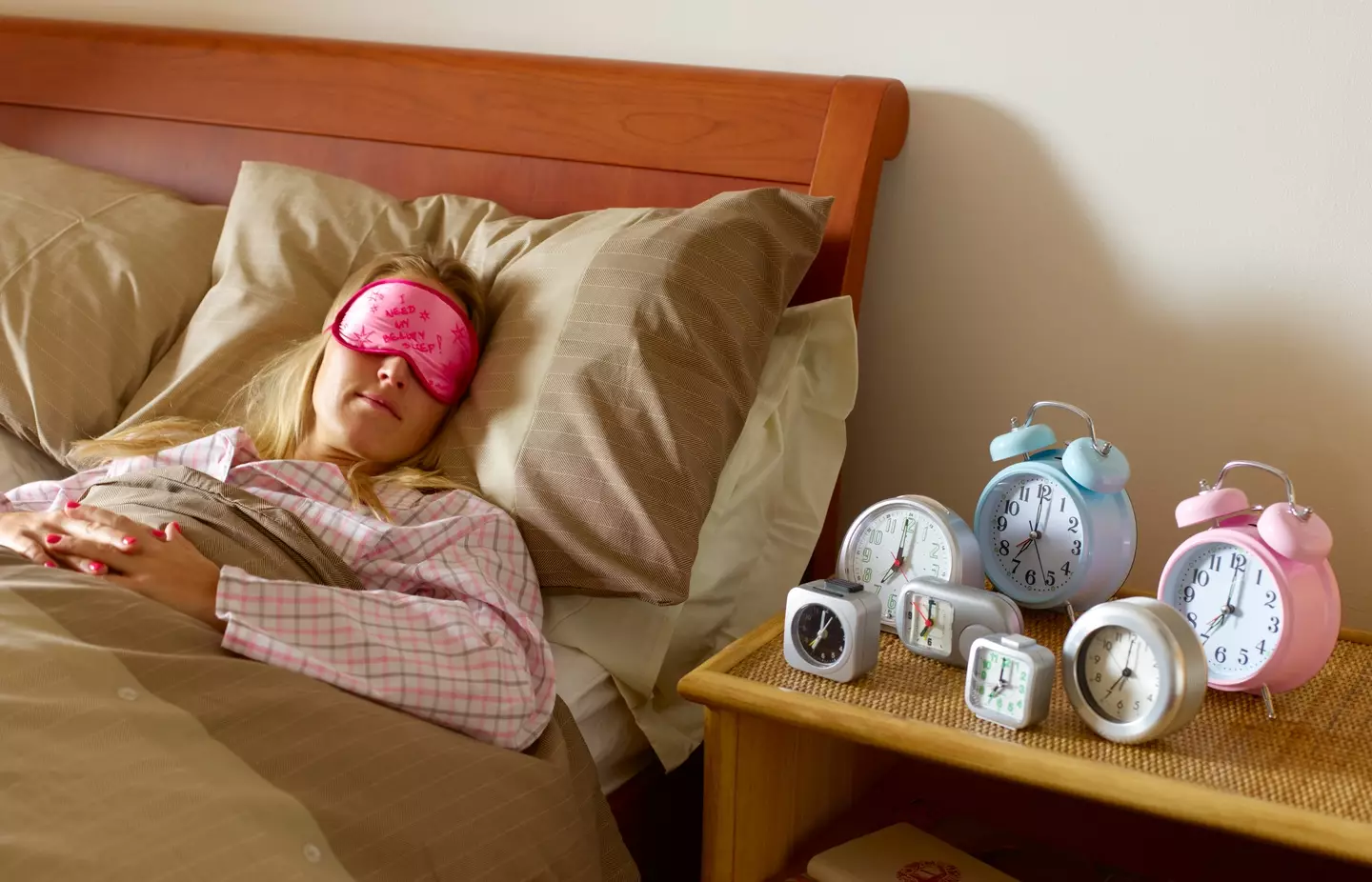
It turns out having an alarm blaring at you several times a day isn’t great, who knew? (Getty Stock Photo)
“So when that alarm goes off in the morning get up! Don’t keep traumatising yourself.”
Judging by the comments in her video it seems as though lots of people enjoy the ‘best feeling’ of going back to sleep after that first alarm kicks in.
Someone else said that had one for every 10 minute interval between 6am and 7:30am, while another said they ‘sleep through the alarms and that’s why I need several’.
They said you wouldn’t get sleep inertia if you just ‘don’t wake up’, which I suppose is rather true.
Another person said they had gone for a Sunrise alarm clock which gradually turns up the light to wake you up instead of blaring sound at you.
“The first day I woke up I literally woke up with a smile on my face,” they said, which sounds like a rather more pleasant way of getting up in the morning.
More shared their tips for getting out of bed in the morning, including having the alarm located somewhere you have to get up to switch it off.
Here’s to a good night’s sleep.
.png)
Let’s be real, sometimes going to sleep is the absolute highlight of the day. After long, endless hours at work, a painful commute home and then a bowl of reheated dinner, getting back into bed can be all you want.
And on the opposite end of the scale, waking up the next morning can be like an actual nightmare.
But that’s occasionally made even worse when the corners of your eyes are coated in that gross, yellow gunk. Like a grimy reminder of the fact you need to get up and ready for work.
Yet while the first thing we do is wipe it away, no many of us really know what that ‘yellow sleep’ actually is – and people have been shocked after finding out.
Sure, it’s a bit of a disgusting thing to discuss but it’s something most of us can relate to – it’s pretty natural.
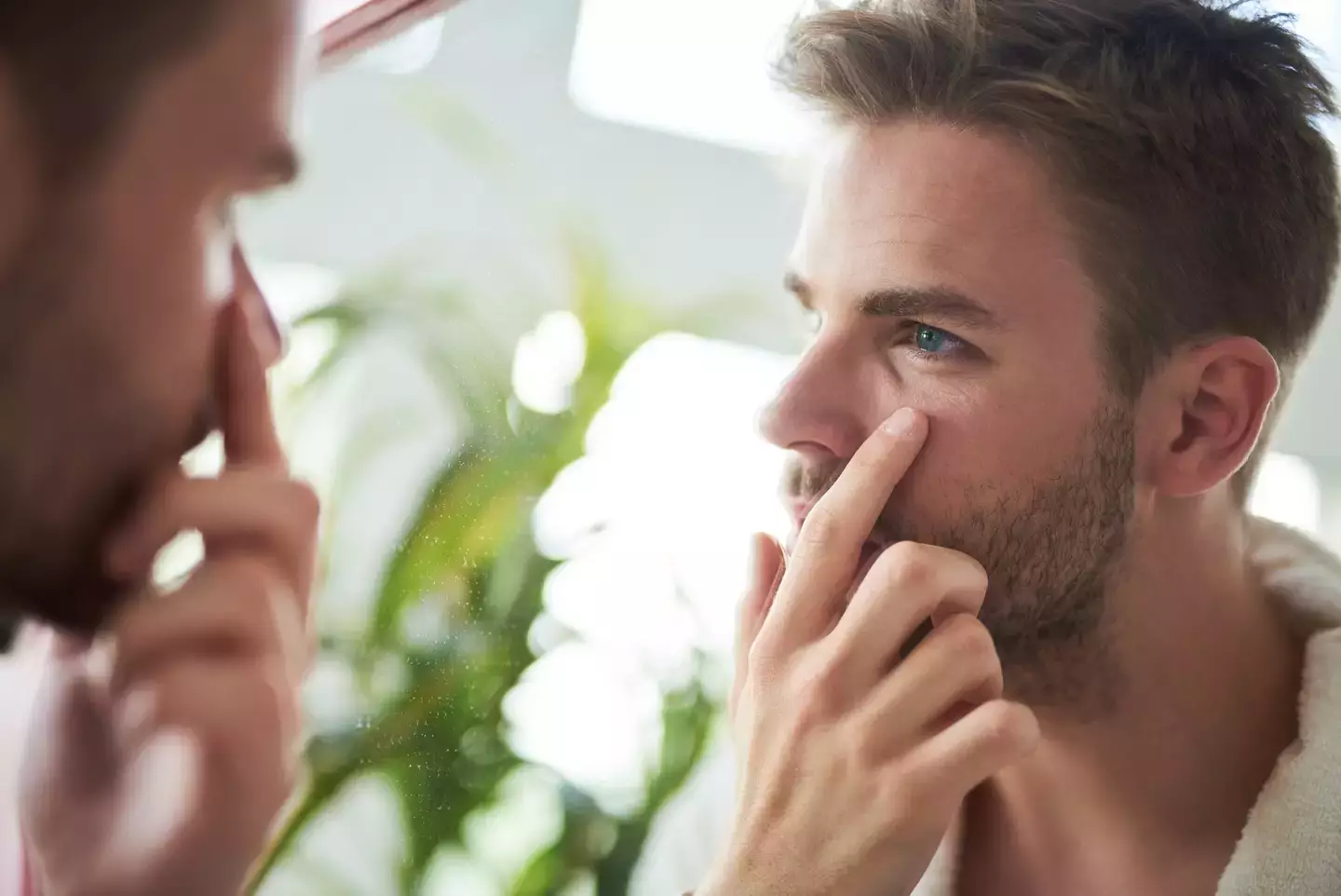
It might be the first thing you do in the morning. (Getty Stock Photos)
A TikTok from neuroscientist Andrew Huberman explained why this yellow gloop specifically happens while we’re sleeping.
He said: “If you have ever woken up in the morning and you have some crust on your eyes.
“And you know that crust, that kind of yellowy stuff, sometimes it’s yellow – I know this is kind of gross. That’s actually dead bacteria that your eyes have successfully defeated during your night’s sleep.
“So when you wipe those away, you’re taking the casualties of a war that you won during your night’s sleep and you’re whisking those away.”
Basically, when you’re wiping away those crusty bits from your eyes in the morning, you’re disposing of the deceased intruders that dared to breach your body’s well-being.
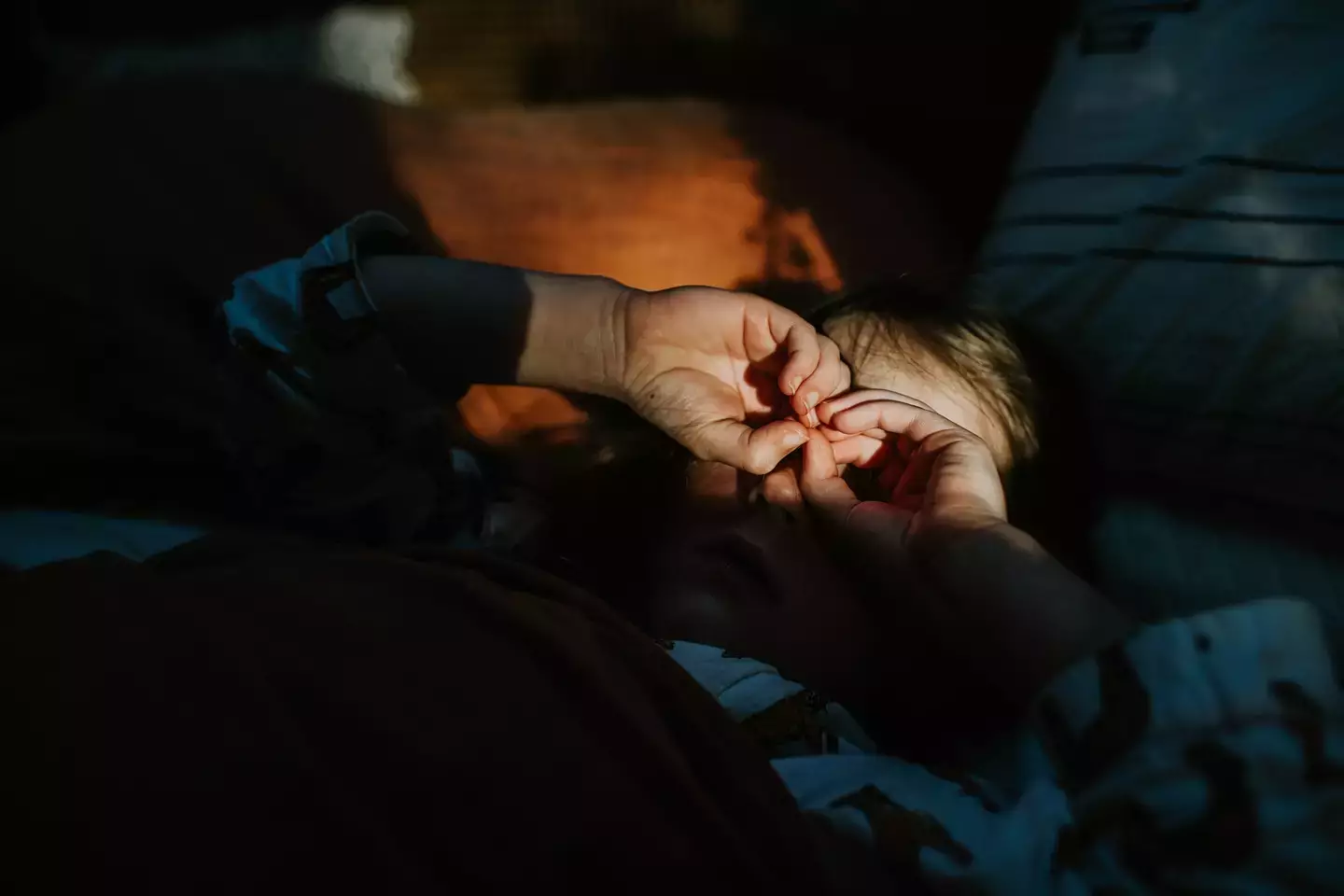
The yellow gunk actually helps us out. (Getty Stock Photos)
Going into more detail, Medical News Today and the Cleveland Clinic say the crust in your eyes is actually a combination of dead skin cells, dirt, dust, oil and mucus. Lovely.
When we’re awake we blink away all this nastiness, but with out peepers shut during sleep, it all builds up, congeals, and dries out – ready for us to deal with in the morning.
It’s grim, but important for keeping our eyes clean and healthy. People were mind-blown when they found out the reason behind the crust, leaving several comments on the TikTok.
One said: “I refuse to lose even when I’m sleeping.” Another user rightly commented: “Starting the day with a victory.”
A third user said: “When I was in kindergar[t]en i put them in my tea,” followed by a skull emoji. Ok, now that’s gross.
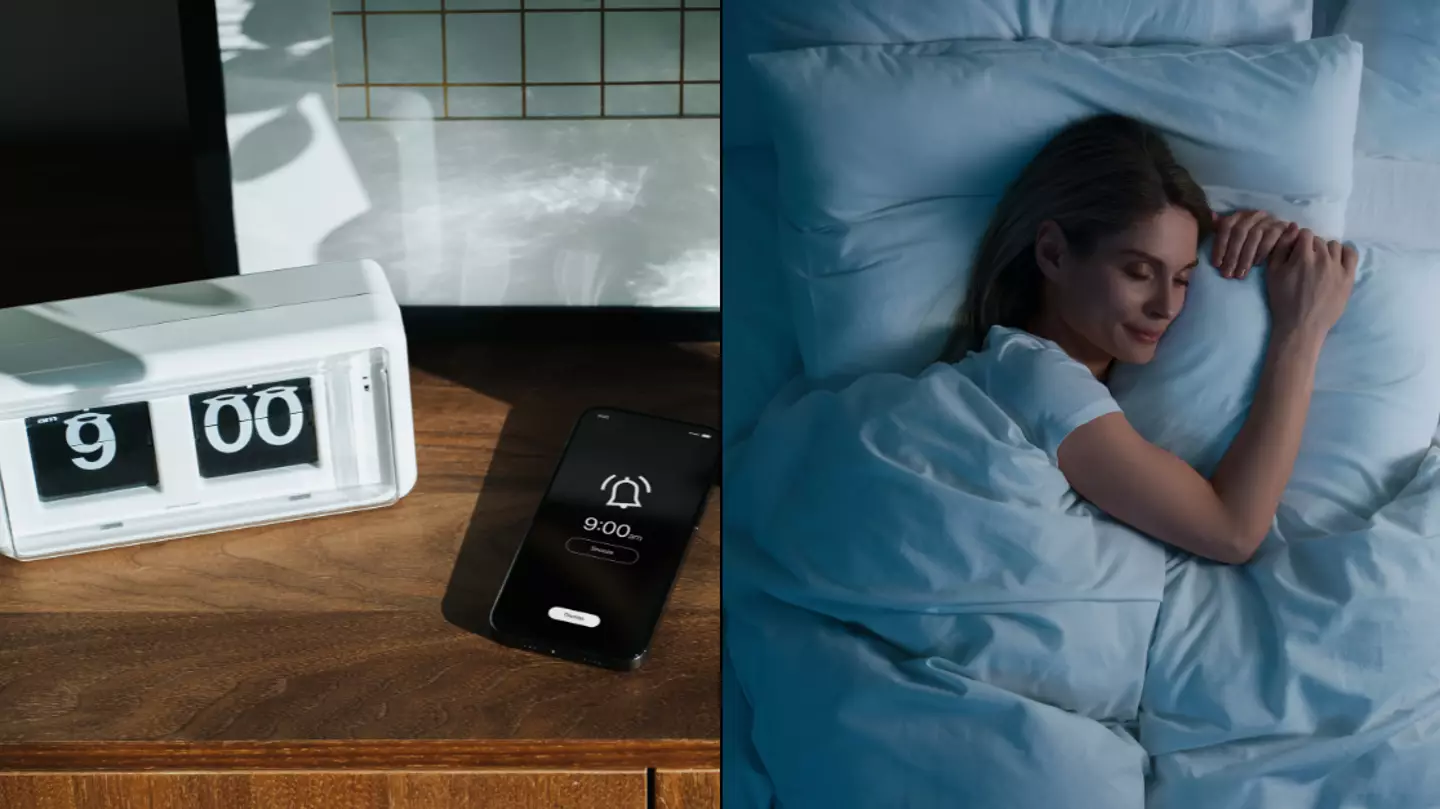
When the end of the working week rolls around, most of us can’t wait to rest and recharge for a couple of days.
We say that though…and end up straight in the pub right after we’ve clocked off, before stumbling in at a godforsaken hour the following morning.
And if the hangover doesn’t leave us bed bound, you can put money on the fact that we will probably do it all again on Saturday night too. So much for a relaxing couple of days off work, eh?
The beauty of this British pastime, though, is that we can all let loose without clock-watching throughout the entire evening while worrying about how many hours you have got until your alarm goes off.
Unless you’ve got somewhere important to be – or a boozy bottomless brunch you need to be on time for – there’s no need to rush out of bed in the morning,
And according to this expert, abandoning your alarm clock for the weekend is the only way that you will feel the benefit of having a few days off from the rat race we call life – although she doesn’t recommend the two day bender.
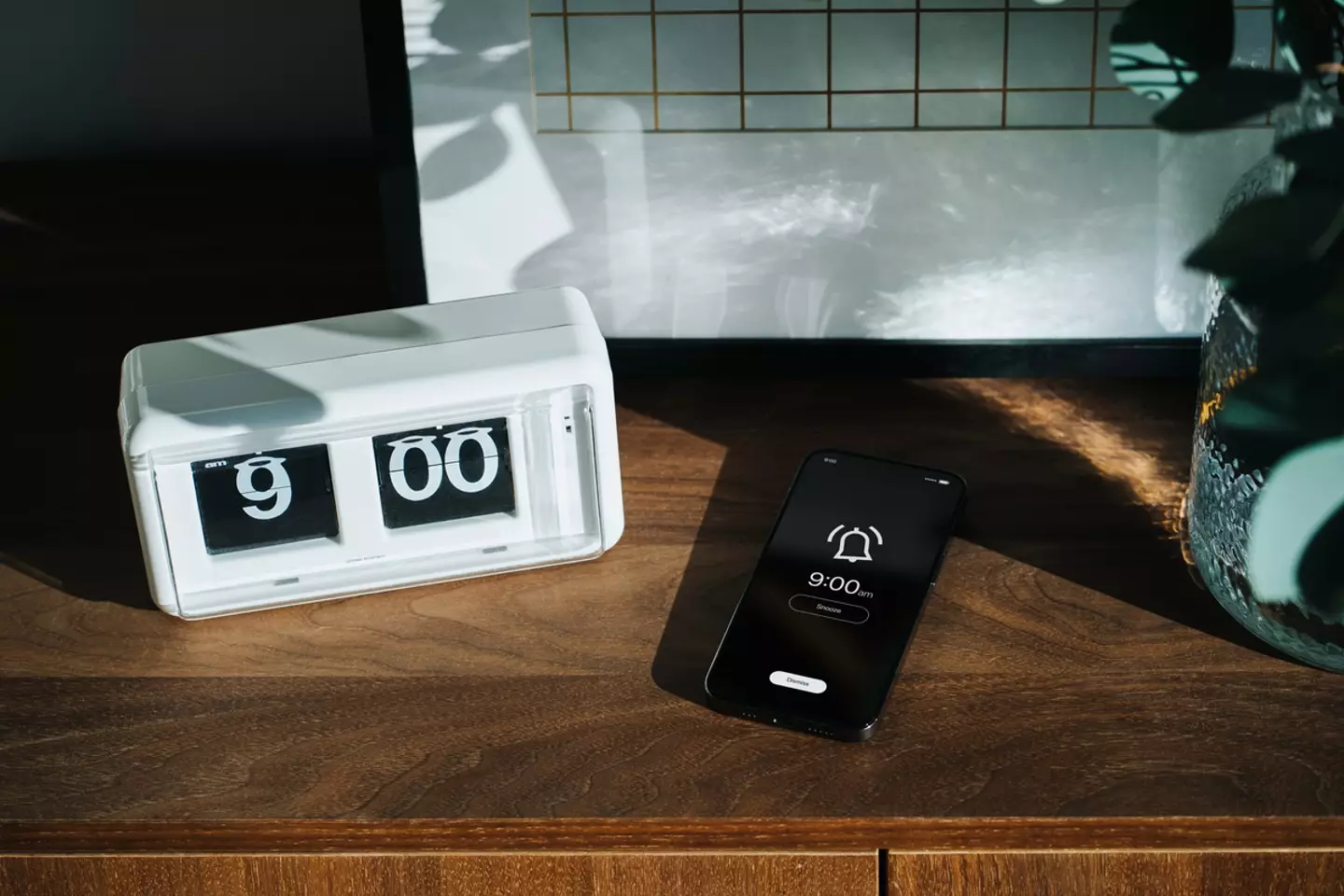
This sleep expert urged people not to set their alarm clocks over the weekend (Getty Stock Image)
Lisa Artis, Deputy CEO of The Sleep Charity in Doncaster, explained that you are probably making life a lot harder for yourself by getting legless on a weekend instead of just having a chilled one.
Despite the fact you might get a second wind on a Friday evening after an early get up and a long day at work, the snoozing expert said that you are actually ending up in ‘sleep debt’.
Unfortunately, she reckons that this will have a knock-on effect throughout at least the next week – and your brain will still be playing catchup by the time the following weekend rolls around.
Sharing her advice for a rejuvenating ritual for the end of the working week, Lisa told the Daily Mail: “Taking it easy on the weekend may sound boring, but it does your body a world of good – especially when it comes to sleep.
“We operate on a roughly 24-hour cycle called the circadian rhythm, regulated by the suprachiasmatic nucleus in the hypothalamus.
“Maintaining a regular sleeping pattern on the weekend, i.e. not going out drinking and partying till the break of dawn, preserves this cycle, allowing the body to recharge as normal.”
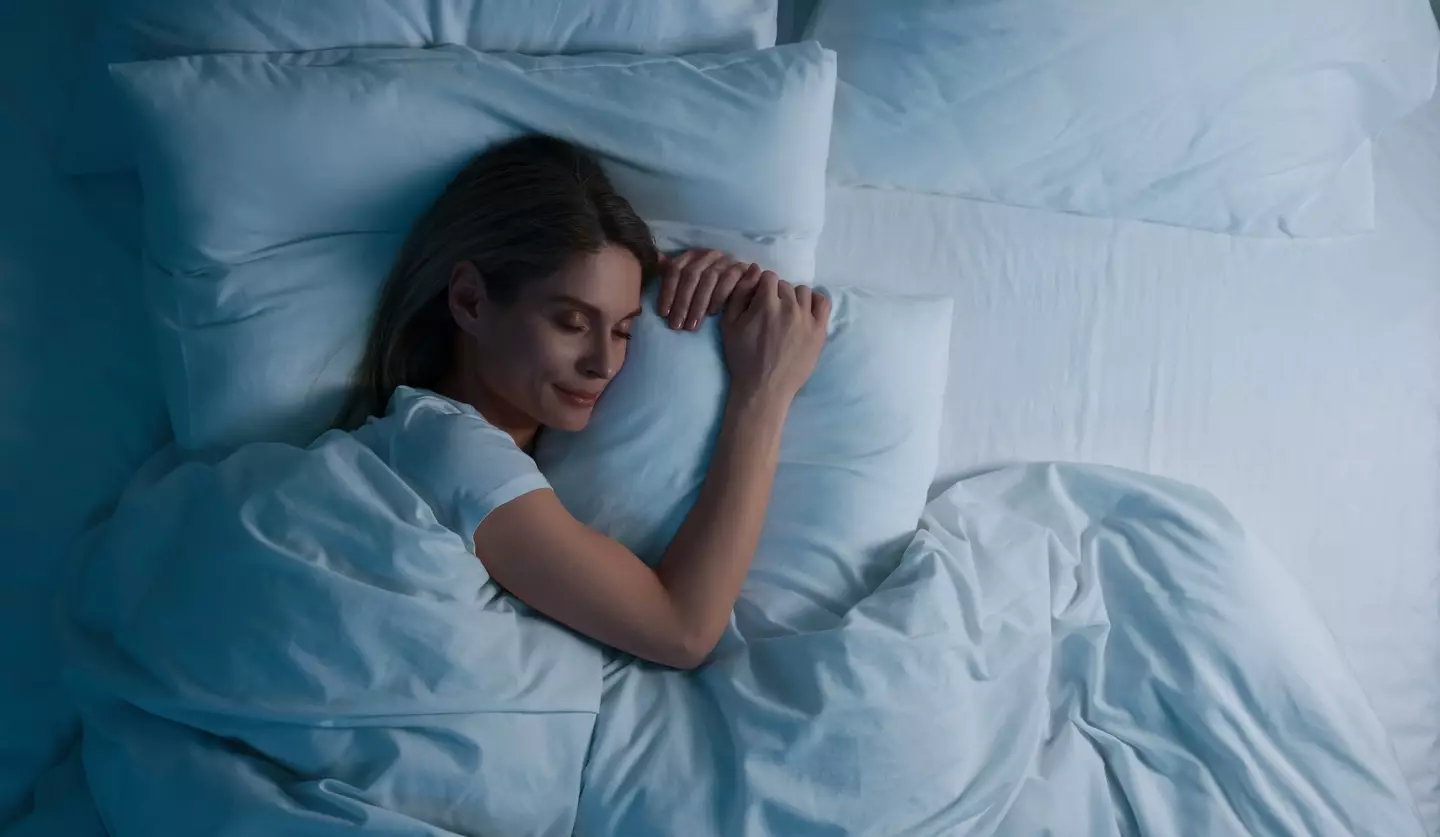
Lisa Artis says the only way you can feel recharged is by making sure you have uninterrupted sleep (Getty Stock Image)
There is another crucial component which will ensure your body has a chance to relax properly too – uninterrupted sleep.
Lisa explained that you are best off switching your alarm off on Saturdays and Sundays to enjoy the perks of a lie in.
She added: “With quality, uninterrupted sleep with no alarm and a restful few days, you’ll go to work on Monday feeling refreshed and ready for the week.
“In contrast, living for the weekend, staying up late and piling up sleep debt leads to increased adenosine levels – the chemical in the brain that makes us tired.
“And with work looming, there’s not enough time to recover before the week starts again. Adenosine levels will remain high until we get our sleep cycle back on track.”
She warned that this can make the work feel ‘more difficult’ when you return on a Monday morning – so maybe choose snoozing your alarm over Sambuca in future.


